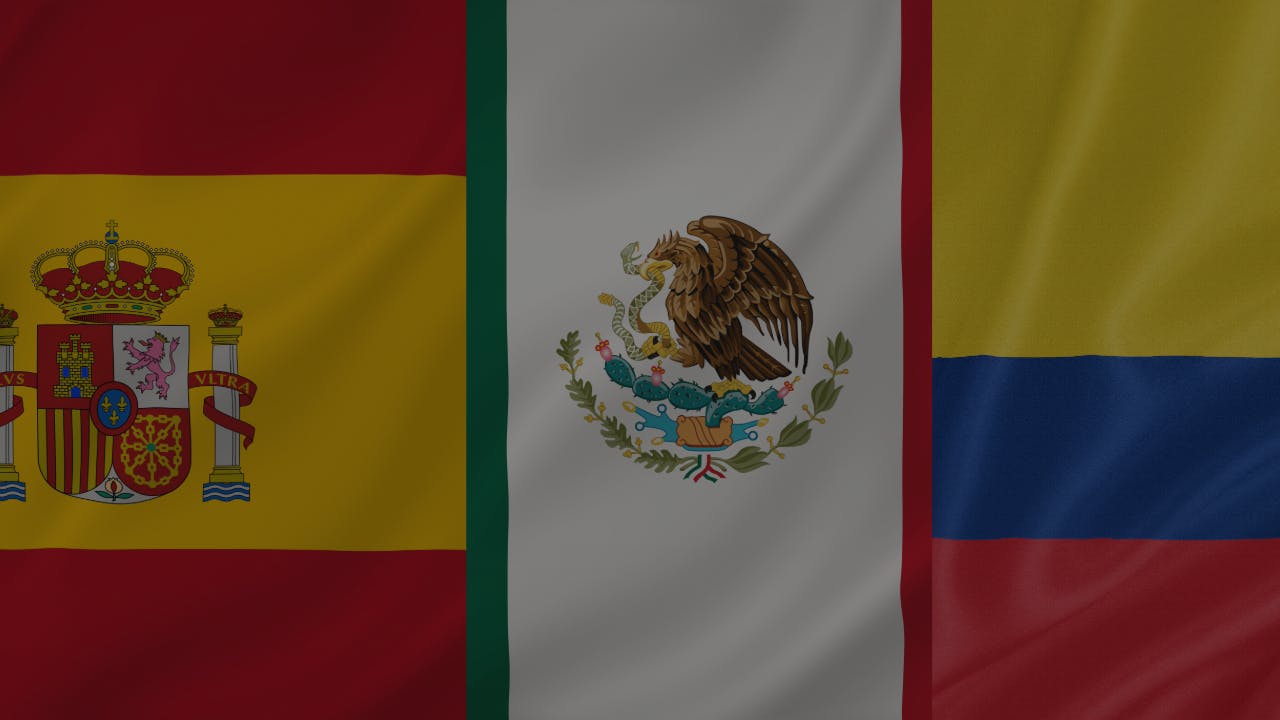“You exceeded my expectations!” the beautiful Brazilian girl beside me exclaimed, in her exotically accented English, to the barista in the gourmet cafe. The barista had created one of those cute little paintings with creamer on the surface of her latte, which apparently exceeded her expectations.
That entire day, even after we finished our coffee and she left with an effortlessly enunciated ciao, I couldn’t help but smile at how damn cute the way she talked sounded. I’d spent quite a lot of time around foreign accents and even hung out with a fair share of Brazilians, but something about hers was unique.
After seven months in Central and South America spent learning Spanish and making friends with travelers hailing from Iceland to Pakistan, I’ve finally figured out what made the Brazilian in the cafe so charming.
It wasn’t the musicality of her native Portuguese tongue flirting with the Teutonic sounds of English; it wasn’t because she could have passed for being Halle Berry’s younger sister; her charm was in her usage of English expressions that captured the specific emotions of the moment.
Have you ever met a foreigner who was very charming even though they had a thick accent and made some grammar mistakes? A lot of times, it’s because they know how to use specific English expressions to capture the emotional tonality of the moment. This makes perfect sense on an elementary level; we feel a great affinity for people who understand what we are going through.
If you speak or are learning a second language, you can use this to your advantage. Focus on learning and using expressions and phrases as opposed to grammar rules; it actually makes language learning fun and easier.
Humor: For some reason, people are a whole lot funnier when they tell jokes in their second language to native speakers of that language. I remember cracking up when my friend Eli responded to a bold claim in his thick Israeli accent, “Is that the truth, or the brother of the truth?“
So, be a little more daring in telling jokes in your second language, even if they are dumb or not original.
Colloquialisms: There can also be a lot of charm in using colloquialisms, expressions, words, or phrases specific to geographic areas, cities, states, and countries. Learning colloquialisms is a great way to connect with local culture; simply ask locals to teach you some popular sayings or expressions.
I do recommend that you use the SuperMemo flashcard app to commit these to memory
It’s a free tool that synchronizes things to be remembered between your smartphone and a web app with a very clever algorithm to optimize the practice of vocabulary you’re trying to enshrine in your memory.
Expressions in Spanish
El placer fue an el Mio – The pleasure was mine
Todos los caminos yeavan hacia aroma – Everyone has to find their own way
Encantado! – Charmed to meet you!
Por supuesto – Of course!
No es cosa tuya – None of your business
Pura vida – Pure life! (Costa Rica)
Que Onda – Whatsup! (Panama)
Más vale tarde que nunca – Better late than never
Cruzando los dedos – Cross your fingers
Me estás tomando el pelo – You’re pulling my leg
Yo también – Same here
Siéntete como en tu casa – Make yourself at home
Los leones no se preocupan por las opiniones de ovejas” – Lions do not worry about the opinions of sheep
¡Qué oso! – “How embarrassing,”…they say, “What a bear!”
Él le echó los perros – To flirt aggressively
Espero que podamos seguir conversando despues – I look forward to a continued conversation with you.
Suficientemente inteligente para bañar un oso sin mojar su pelaje – Clever enough to wash a bear without getting it’s fur wet
Brilla con luz propia – Grace without effort
Caberniculas – Cavemen
Se cree la ultima coca-cola Del desierto – I’m the last Coca-Cola in the desert (Expression of stupid confidence)
Muy lindas y muy pobres, como las preferio – They (the women) are very beautiful and very poor, as I prefer them
Si es comodo, es decir que no es una adventure – If it’s comfortable, it won’t be an adventure
Hombre de todo terrano – Man of many talents
Dame el globo que para eso es mío. – Give me the world for it’s mine.
Fui un esclavo de trabajo – I was a workaholic
Estoy haciendo una trabajo que me apacciona – I’m doing a project that I’m very passionate about
No somos seres humanos teniendo una experiencia espiritual. Somos seres espirituales teniendo una experiencia human. – We are not human beings having a spiritual experience. We are spiritual beings having a human experience.
He estado ocultando un secreto de ti – I’ve been hiding something from you…Voy a continuar a ocultando lo – I’ll continue hiding it from you…Algunos veces cuando estoy dormido, babeo la almohada – Sometimes when I’m sleeping, I drool on the pillow Puedo babeo en tu almohada… – Maybe I can drool on your pillow…
Algo vacano – Something cool
Paresco muy amable pero en realidad soy malo – I seem nice but really, I’m bad
Soy un experto en bailar salsa como un gingo. – I’m an expert at salsa dancing like a gringo
Aqua de coco es el segundo mejor cura para un rezaka, el mejor es el paracaidismo – Coconut water is the second best cure for a hangover, the first is skydiving
Por ellas, por las mamas de ellas, Que las hicieron tan bella as para poder pichar con ellas – For the ladies, for their mamas, who made them so we could peck them – A very cheeky toast!
Goterear – To get something for free
Anecdotista – Raconteur
Tu sabras la repuesta cuando apareca – You will know the answer when it appears
Yo me vengo – I will have revenge/I will come on you, a very cheeky double entendre
Ver un pelicula – To watch a movie or Peleculiar – To “Netflix and chill”
Ya te viniste – Have you come?











